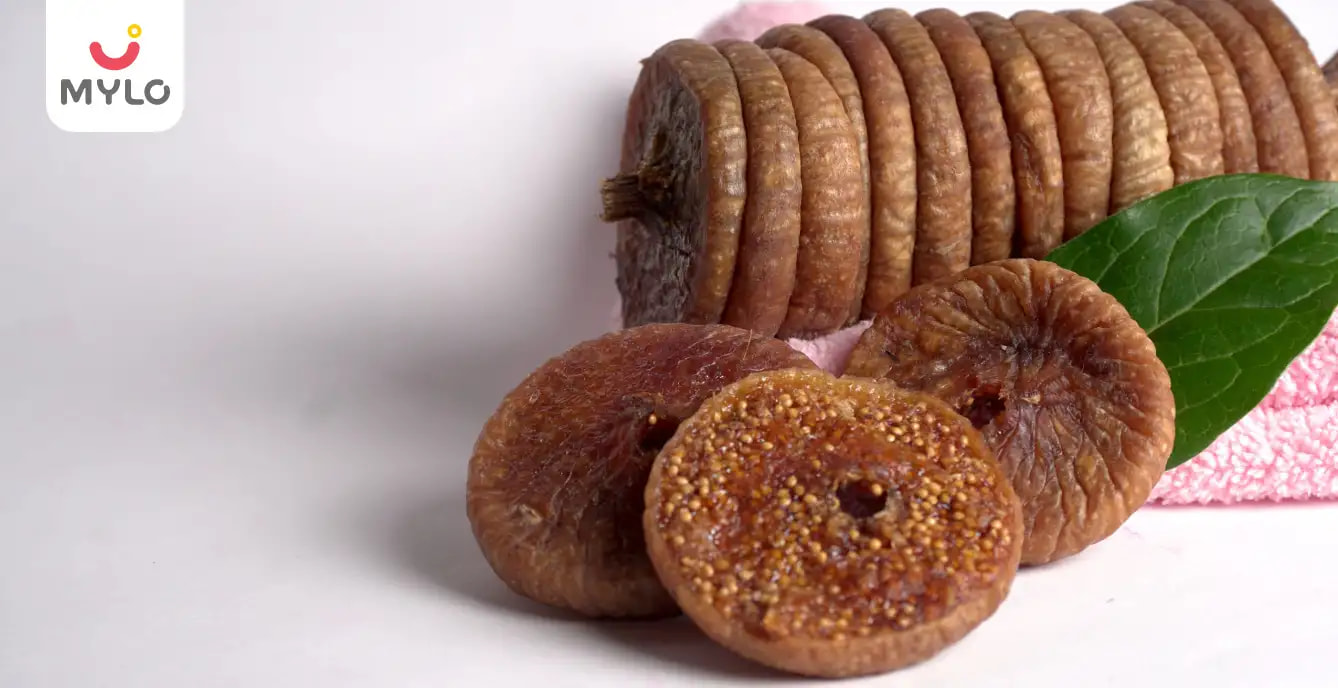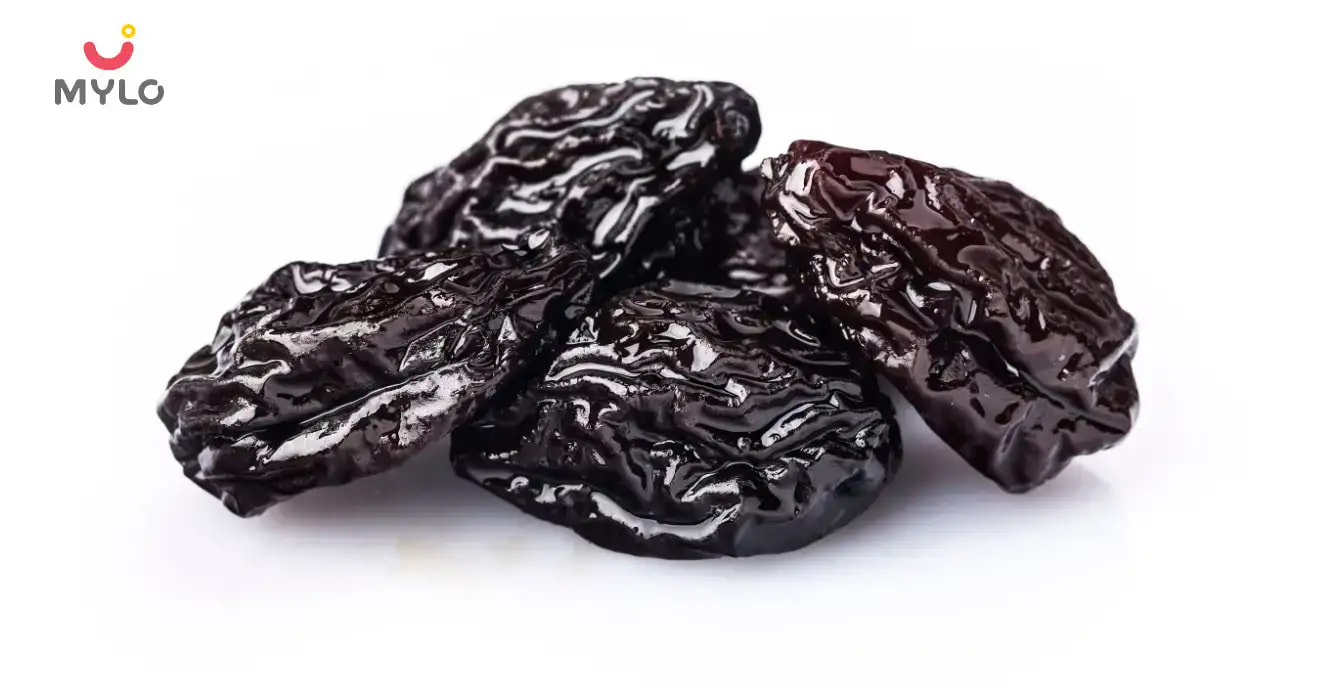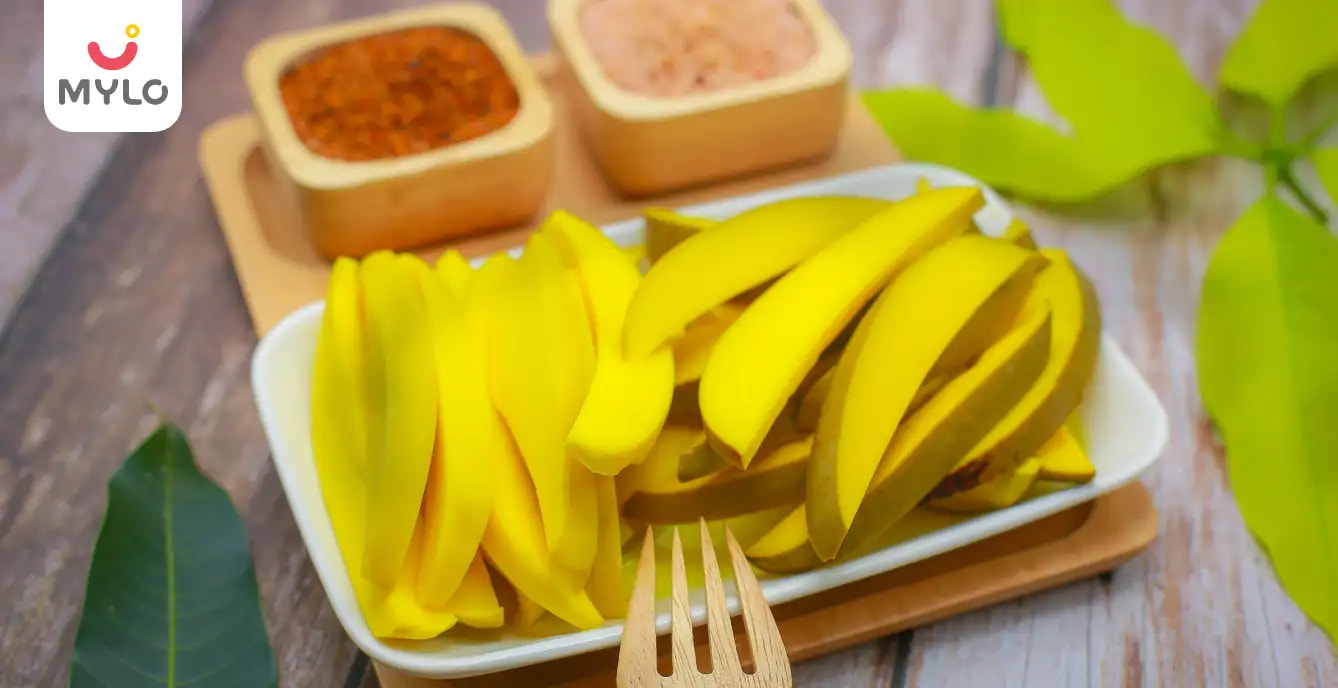Home

Diet & Nutrition

Anjeer in Pregnancy: Benefits & Side Effects of Eating Figs
In this Article

Diet & Nutrition
Anjeer in Pregnancy: Benefits & Side Effects of Eating Figs
Updated on 15 January 2024



Medically Reviewed by
Dt. Mansi Goyal
Specializes in Critical Gestational Diabetes, PCOS Patients - BSC| MSC (Home Science, Food & Nutrition)
View Profile

During pregnancy, maintaining a healthy diet is of utmost importance to ensure the well-being of both the mother and the developing baby. One fruit that stands out for its numerous health benefits is anjeer, also known as figs. Anjeer is a sweet and nutritious fruit that can be consumed fresh or dried. In this article, we will explore the nutritional value, benefits, recommended intake, potential side effects, precautions, and ways to consume anjeer in pregnancy.
Nutritional Value of Anjeer
Anjeer is packed with essential nutrients that are highly beneficial for pregnant women. It is an excellent source of dietary fiber, which aids in digestion and prevents constipation, a common issue during pregnancy.
Figs are also rich in vitamins and minerals like vitamin K, potassium, and calcium, which promote healthy bone development in the fetus. Additionally, anjeer contains antioxidants that protect against oxidative stress and inflammation, reducing the risk of pregnancy complications.
Anjeer Benefits in Pregnancy
There are numerous benefits of anjeer during pregnancy. Let us take a look at some of the key benefits of fig during pregnancy:
1. Promotes healthy digestion
The high fiber content in anjeer helps regulate bowel movements, preventing constipation and promoting a healthy digestive system. This can alleviate discomfort and reduce the risk of hemorrhoids, a common issue during pregnancy.
2. Provides essential nutrients
Anjeer is a powerhouse of essential nutrients like iron, calcium, and potassium. These nutrients are crucial for the development of the baby's bones, teeth, and muscles, as well as maintaining the mother's overall health.
3. Boosts immunity
Figs are rich in antioxidants, which strengthen the immune system and protect against infections. This is particularly important during pregnancy when the immune system is naturally weakened.
4. Controls blood pressure
Anjeer contains potassium, a mineral that helps regulate blood pressure. By including figs in pregnancy diet, women can help maintain healthy blood pressure levels, reducing the risk of complications such as preeclampsia.
5. Prevents anemia
Iron deficiency anemia is common during pregnancy. Anjeer is an excellent source of iron, which plays a vital role in the production of red blood cells. Consuming figs can help prevent or alleviate anemia and increase energy levels.
6. Aids in fetal growth
The high calcium content in anjeer promotes the development of the baby's bones and teeth. This mineral also aids in the proper functioning of the nervous system and muscle contractions.
7. Reduces the risk of gestational diabetes
Figs have a low glycemic index, which means they release sugar slowly into the bloodstream. This helps regulate blood sugar levels, reducing the risk of gestational diabetes in pregnant women.
Recommended Intake of Anjeer During Pregnancy
While anjeer offers numerous benefits, it is essential to consume it in moderation during pregnancy. The recommended intake of dried figs in pregnancy is approximately 2-3 figs per day, meaning women can eat 2-3 dried figs during pregnancy each day.
It is important to remember that anjeer is high in natural sugars, so excessive consumption may lead to weight gain and an increased risk of gestational diabetes. It is always best to consult with your healthcare provider to determine the appropriate amount of anjeer for your specific needs.
You may also like: Prunes During Pregnancy: Benefits & Risks
Potential Side Effects of Consuming Figs During Pregnancy
While there are numerous anjeer benefits in pregnancy, figs may also lead to certain side effects such as:
1. Allergic reactions
Some individuals may be allergic to figs. Allergic reactions can range from mild symptoms like itching and hives to severe reactions like difficulty breathing and anaphylaxis. If you experience any allergic symptoms after consuming anjeer, seek medical attention immediately.
2. Diarrhea
Anjeer is rich in fiber, which aids in digestion. However, consuming too much fiber can have a laxative effect, leading to diarrhea. It is important to consume anjeer in moderation to avoid digestive discomfort.
3. Hyperkalemia
Anjeer is a good source of potassium, which is essential for maintaining normal bodily functions. However, consuming excessive amounts of potassium-rich foods, including anjeer, can lead to hyperkalemia, a condition characterized by high levels of potassium in the blood. This can have adverse effects on the heart and should be avoided.
4. Increased blood sugar levels
While anjeer has a low glycemic index, excessive consumption can still lead to elevated blood sugar levels. This may be a concern for pregnant women with gestational diabetes or those at risk of developing it. It is crucial to monitor blood sugar levels and consult with a healthcare provider before including anjeer in the diet.
You may also like: Pista During Pregnancy: Benefits and Side Effects
Precautions To Follow When Eating Anjeer in Pregnancy
Here are some precautions you should follow while consuming figs in pregnancy:
1. Wash thoroughly
Before consuming figs during pregnancy, it is important to wash them thoroughly to remove any dirt or pesticides that may be present on the skin.
2. Choose quality sources
Opt for organic anjeer whenever possible to minimize exposure to pesticides and other harmful chemicals.
3. Avoid underripe figs
Underripe figs can be hard and less flavorful. It is recommended to choose ripe figs that are soft to the touch and have a sweet aroma.
4. Moderate consumption
As mentioned earlier, anjeer should be consumed in moderation to avoid potential side effects. Stick to the recommended intake of 2-3 dried figs in pregnancy per day.
5. Consult your healthcare provider
Every pregnancy is unique, and it is important to consult with your healthcare provider before making any significant changes to your diet. They can provide personalized advice based on your specific needs and medical history.
You may also like: Almonds in Pregnancy: Benefits for the Baby and Mother
How to Eat Anjeer During Pregnancy?
Wondering how to eat figs during pregnancy? Figs can be enjoyed in various ways, making it easy to incorporate into your pregnancy diet. Here are some simple and delicious ways to eat anjeer during pregnancy:
1. Fresh
Enjoy fresh figs on their own as a snack or add them to salads for a burst of sweetness.
2. Dried
Dried figs during pregnancy are a convenient option that can be easily carried as a snack. They can also be added to trail mixes, oatmeal, or baked goods for added flavor and nutrition.
3. Smoothies
Blend fresh or dried figs into smoothies for a nutritious and delicious treat.
4. Stuffed
Cut fresh figs in half and stuff them with a mixture of nuts and honey for a delightful and healthy dessert.
5. Preserves
Make your own anjeer preserves by cooking fresh figs with a sweetener of your choice. Enjoy it on toast or as a topping for yogurt.
You may also like: Curd During Pregnancy: Navigating the Dos and Don’ts for a Healthy Baby
Conclusion
Anjeer, or figs, offer a wide range of health benefits during pregnancy. From promoting healthy digestion to providing essential nutrients, anjeer can be a valuable addition to a pregnant woman's diet. However, it is important to consume anjeer in pregnancy moderately and be aware of potential side effects. By following the recommended intake, taking necessary precautions, and consulting with a healthcare provider, pregnant women can safely enjoy the benefits of anjeer and support a healthy pregnancy.
References
1. Jang, W., Kim, H., Lee, B.-E., & Chang, N. (2018). Maternal fruit and vegetable or vitamin C consumption during pregnancy is associated with fetal growth and infant growth up to 6 months: results from the Korean Mothers and Children’s Environmental Health (MOCEH) cohort study. Nutrition Journal, 17(1)
2. Yonezawa, Y., Obara, T., Yamashita, T., Sugawara, J., Ishikuro, M., Murakami, K., Noda, A., Ueno, F., Suzuki, S., Suganuma, H., & Kuriyama, S. (2020). Fruit and vegetable consumption before and during pregnancy and birth weight of new-borns in Japan: the Tohoku medical megabank project birth and three-generation cohort study. Nutrition Journal, 19(1), 80





Medically Reviewed by
Dt. Mansi Goyal
Specializes in Critical Gestational Diabetes, PCOS Patients - BSC| MSC (Home Science, Food & Nutrition)
View Profile


Written by
Anupama Chadha
Anupama Chadha, born and raised in Delhi is a content writer who has written extensively for industries such as HR, Healthcare, Finance, Retail and Tech.
Read MoreGet baby's diet chart, and growth tips

Related Articles
RECENTLY PUBLISHED ARTICLES
our most recent articles

Pregnancy Best Foods
Black Grapes During Pregnancy: Benefits & When to Avoid

TV & OTT
The Ultimate Guide to the Best Series on Hotstar- Hindi

Care for Baby
The Ultimate Guide to Teaching Children Tables 1 to 20

Activities
Thought of the Day for Kids to Spark Imagination & Positivity

Education
100 Thought of the Day to Brighten and Motivate Young Minds

Orange in Pregnancy: Health Benefits, Side Effects & Precautions
- Radish in Pregnancy: Benefits and Safety Precautions
- Top 10 Pakistani Dramas That Will Keep You Hooked
- New Born Baby Astrology: What Does Your Baby's Zodiac Sign Say About Their Personality
- Pelvic Pain: Causes, Symptoms and Treatment Options
- Brown Discharge: Causes, Symptoms and When to Seek Help
- Baby Hair Style: A Complete Guide for Trendy Parents
- Breast Pain During Ovulation: A Comprehensive Guide on Causes and Solutions
- PCOS Ultrasound: What to Expect During the Procedure
- Uterus Didelphys: Understanding Symptoms, Risks and Treatment Options
- Septate Uterus: A Comprehensive Guide on Symptoms, Risks, and Treatment Options
- Should Pregnant Women Get Flu Shots
- Why you should choose a Vaginal Delivery? Know the pros & cons
- The Art of Painting When Pregnant: Tips for a Safe and Creative Experience
- Do Pregnant Women Get Their Period?


AWARDS AND RECOGNITION

Mylo wins Forbes D2C Disruptor award

Mylo wins The Economic Times Promising Brands 2022
AS SEEN IN

- Mylo Care: Effective and science-backed personal care and wellness solutions for a joyful you.
- Mylo Baby: Science-backed, gentle and effective personal care & hygiene range for your little one.
- Mylo Community: Trusted and empathetic community of 10mn+ parents and experts.
Product Categories
baby carrier | baby soap | baby wipes | stretch marks cream | baby cream | baby shampoo | baby massage oil | baby hair oil | stretch marks oil | baby body wash | baby powder | baby lotion | diaper rash cream | newborn diapers | teether | baby kajal | baby diapers | cloth diapers | laundry detergent 6472 | lactomama lactation granules |








